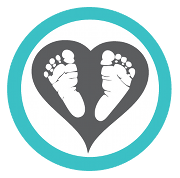We have also seen some of the frustration that can sometimes come with breastfeeding, especially in the beginning. We have seen first-hand how breastfeeding is not always encouraged, assisted and explained. We have seen formula manufacturers spend millions of dollars in advertising, giving away "free" formula. Know that this is a ploy to get you to use the product; nothing more. They stand to gain much more money from you than what it costs them to give you coupons and diaper bags.
We have heard mothers say, "why didn't someone tell us breastfeeding was this important?" or "why did the hospital tell me to supplement my baby with formula if it really is not good for the baby?" They often feel it's just a matter of lifestyle choice and do not realize it can be a matter of health as well as wealth.
Some babies do OK with supplements. For others they're like poison. In either case it's best to avoid supplements in the early days because it disturbs a baby's natural intestinal flora and can make a baby more prone to GI illnesses, particularly in preemies, and allergies. The trouble is, they often try to fatten the baby up in the hospital with supplements and they send the message to parents that it is not only OK, but actually preferable for these babies to get the artificial feedings. They send the message that breastfeeding is inferior to what science has created and which is more easily measurable. It becomes an endless downward spiral. Baby doesn't get to nurse for fear of NEC; not eating results in not getting important antibodies, and supplements are used to counter weight loss. If nature were allowed to do its thing, mothers and babies would enjoy skin-to-skin kangaroo care, uninterrupted breastfeeding and a natural transition for body heat regulation and nutrition. This has been shown to be better than isolation in artificial warmers.
I have recently witnessed a case where this natural process was interrupted. Then, in addition to the other problems of this late preterm baby with gastric reflux, mom was told to continue to supplement one bottle a day for six months or more after discharge to ensure weight gain. Well, it turned out that the more she supplemented the more he vomited and he did not gain weight because he couldn't keep anything down. Changing formulas did not help but he continued to get worse. Finally we decided to eliminate dairy from mom's diet and stop the supplements. There was an immediate improvement and as more of the formula was removed from the baby's system, the better he got and weight gain improved. BUT, her milk supply was diminished due to all the supplements they tried (per pediatrician recommendation and personal choice). Finally, she defied the pediatrician, nursed the baby continually to try and improve volume and he stopped screaming (after five months of continual pain). When she told the pediatrician what she was doing he said, "let us know when you want to go to a soy formula" and he told her weaning was inevitable. Even when she told him breastfeeding with her dietary changes was the only thing that helped him and made him feel better! Fortunately, she has not added any more formula and the baby seems to only be able to handle breast milk. It's been a long journey and tragic for this little baby who all along needed strictly breast milk from his mother. Of course she feels terribly guilty for adding to his discomfort by supplementing.
With the help of another pediatrician, she finally got Domperidone. This is a very effective galactagogue (to encourage breast milk production). It is hard to get in the U.S. though widely used in Canada and other countries. I knew of its effectiveness but did not know how to get it and other than me nobody in five months suggested it to this mom. Finally locating a pharmacy who compounds this drug, she noticed improvement of her milk supply in less than 24 hours but it is taking a lot of work to increase the milk supply once it was diminished. She wishes she had chosen to exclusively breast feed. The baby is a normal baby for the first time in his young life.
Fortunately most babies aren't this sensitive to cow or soy milk formulas, but there are some and even those mildly affected might have a better quality of life if they weren't dealing with these hard-to-digest proteins. Health care providers should be treating the primary problem (need to increase breast milk) rather than giving supplements, further suppressing the milk production and introducing substances the baby is often sensitive to.
If you are on the fence about breastfeeding (especially exclusive breastfeeding) please consider that you do not know in advance how your baby will do with artificial baby milk. Even if you have other children who did well with it, this baby may not. If you choose to breastfeed, you have kept your options open; if you choose to formula feed from the outset, you will lose this option. You can change your mind and though there could be a delay you could still feed your baby even if you started out with bottles, but why not give it a 30 day try? Your baby will thank you in one way or another and it's good for you too.






















No comments:
Post a Comment
This blog only reviews comments before posting to avoid hijacking. We will respond to comments Mon-Thurs but we are closed Fri-Sun and legal holidays.